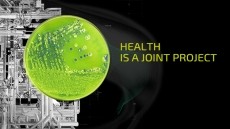Crucell, DSM hit 15g/L milestone with PER.C6 technology
achieved a record yield of 15 grams per litre with their PER.C6
cell line technology for the production of monoclonal antibodies
and recombinant proteins.
The 15g/L titre (i.e., antibody concentration) was reached with an undisclosed antibody product by scientists working at the PERCIVA PER.C6 Development Center in Cambridge, US.
This is the joint venture opened by Crucell and DSM Biologics in November 2006 as part of the PER.C6 collaboration they originally announced in December 2002.
Marco Cacciuttolo, chief executive officer of PERCIVA, said the new yield " marks a major event for the biopharmaceutical industry.
It demonstrates the power and robustness of the PER.C6 manufacturing platform and it clearly shows that the PER.C6 manufacturing platform will have a major impact on the overall economics of manufacturing biopharmaceuticals ."
Based on currently available scientific data, " we are confident that we will be able to drive productivity even further ", Cacciuttolo added.
In February 2007 Crucell and DSM Pharmaceutical Products, the US-based contract manufacturer that is DSM Biologics' parent, announced that fermentation yields for monoclonal antibodies with the PER.C6 system had reached 10g/L.
Last December DSM told Reuters yields were now up to 13g/L.
The joint venture partners had previously talked about ramping up to 20g/L by the end of 2007.
But according to Barbara Mulder, director of corporate communications for Crucell, that was never an official target.
" We are very happy with the target we've reached ," Mulder commented.
As for the future, she declined to make any specific projections.
However, he joint venture wanted to " fully use the capacity " of the PER.C6 technology and was working on improving the production platform, Mulder said The PER.C6 system uses cell culture for the large-scale production of monoclonal antibodies (MAbs) and recombinant proteins.
Its claimed strengths include an " excellent " safety profile, scalability, versatility and productivity under serum-free culture conditions.
The technology has the potential to reduce the start-up time for MAb or protein production from four weeks to two or three weeks, as well as offering a more predictable manufacturing process.
One of the benefits of higher yields is they allow manufacturers to shift to smaller, cheaper bioreactors.
At the moment Crucell has no plans to scale down its own manufacturing using the PER.C6 system which, as Mulder pointed out, is all geared to development-stage products.
The same applies to the numerous biopharmaceutical licensees for the PER.C6 technology, including Sanofi-Aventis, Novartis, Wyeth and Merck & Co.
It is very difficult to predict when any of these products may need to be manufactured in commercial-scale quantities, Mulder added.
What the Crucell-DSM joint venture is certain of is the substantial cost benefits of improving its PER.C6 yields, benefits it expects to be passed on to healthcare systems and patients.
This is no small issue at a time when the high prices of novel biopharmaceuticals are under intense and critical scrutiny.
"
The PER.C6 manufacturing platform has tremendous potential for the biotech industry to significantly reduce the cost of goods for monoclonal antibodies and recombinant proteins, resulting in more affordable therapeutic treatments for patients ," commented Marcel Lubben, vice-president of marketing, sales and business development at DSM Biologics.
As an example, Mulder said, manufacturing antibodies against rabies might cost $1,000 per gram at a standard fermentation yield of 2-3 grams per litre.
So using the PER.C6 system could bring the cost down to " only a couple of hundred US dollars or less ".
According to Martina Molsbergen, Crucell's vice-president, business development, the technology can also " reduce the risk of supply limitations and potentially postpone major capital expenditure decision hurdles for drug development companies.
The 15 g/L milestone is instrumental in the further market penetration of the PER.C6 technology. "
The announcement did no harm to the joint-venture partners' share prices either, with DSM's closing around 4.5 per cent higher on 11 March and Crucell's shares up by about 6.5 per cent.
Crucell's share price took a jolt last September after the failure of Merck & Co's HIV vaccine candidate V520, which was produced using the PER.C6 technology.


















